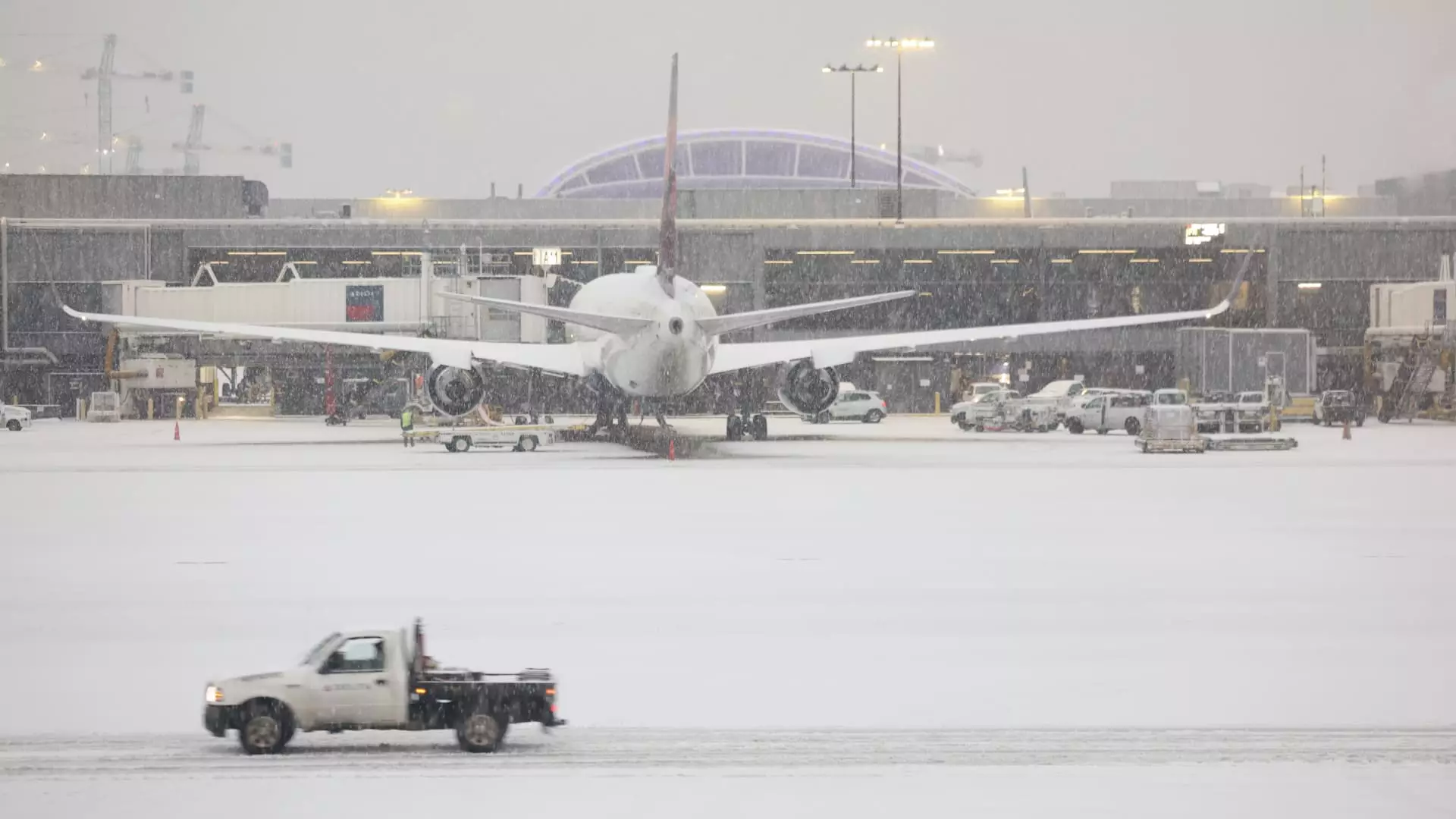The fury of a powerful winter storm rocked travel plans throughout the Southern United States, culminating in the cancellation of over 2,000 flights this past Friday. As travelers faced the harsh consequences of the weather, the disruptions unfolded across major airports, with the impacts rippling far beyond the immediate areas affected by the snow and ice. The scenario played out not only as a logistical nightmare for airlines but also as an unfortunate obstacle for those eager to reach their destinations during a busy travel season.
At the heart of the turmoil was Hartsfield-Jackson Atlanta International Airport, recognized as the busiest airport in the world and a central hub for Delta Air Lines. On this particularly harrowing day, the airport experienced a staggering 40% of its day’s flights being canceled, amassing nearly 900 cancellations. Additional delays compounding the situation saw over 400 flights pushed back. The airport’s operation had to implement a groundstop — a tactical decision to halt incoming flights to mitigate the congestion and chaos arising from the weather’s unexpected severity. Such preventive measures highlight the broader challenges faced by air traffic management during severe weather events.
Emergency Situations in the Air
Adding to the day’s difficulties was an emergency incident involving a Delta Air Lines flight. As Flight 2668 prepared for takeoff from Atlanta heading to Minneapolis-St. Paul, indications of an engine malfunction forced the flight crew to halt the aircraft’s departure. The swift and professional response led to the evacuation of all 208 individuals on board via emergency slides. Delta Airlines expressed their commitment to safety by affirming that the crew adhered to established protocols when faced with the potentially dangerous situation. They took the moment to apologize to their affected customers, reiterating their dedication to addressing the disruptions caused by both the storm and the emergency.
A Broader Impact Across Key Hubs
The storm’s impact reached beyond Atlanta, significantly affecting operations at other major airports. Key hubs such as Dallas/Fort Worth International Airport and Charlotte Douglas International Airport also reported immense disruption, with American Airlines suffering heavy cancellations. In total, more than 1,000 flights in and out of these airports were called off, leaving countless passengers stranded and scrambling to adjust their plans. The winter storm’s harsh grip on the area caused a ripple effect, putting enormous strain on both travelers and airline staff alike.
In response to the widespread disruption, airlines such as Delta, Southwest, and American Airlines proactively waived change fees and fare differences for affected passengers. This decision is an essential step in fostering goodwill and understanding between airlines and customers, particularly in challenging circumstances not within their control. By facilitating the rebooking process, carriers mitigate some of the frustration inherent to flight cancellations.
Ultimately, the snowy onslaught, while disastrous for immediate travel, highlights the resilience of the aviation industry to adapt during severe weather, ensuring safety and commitment to customer service remain the top priority.

